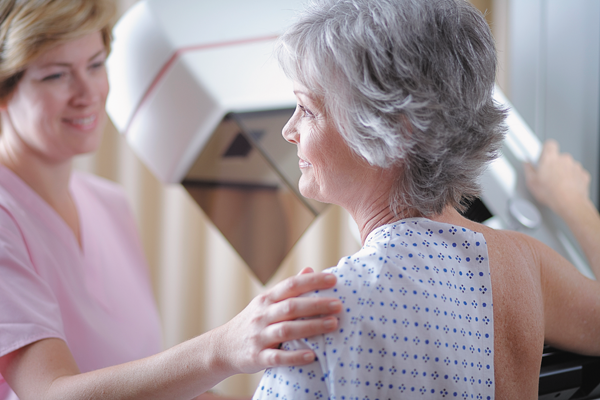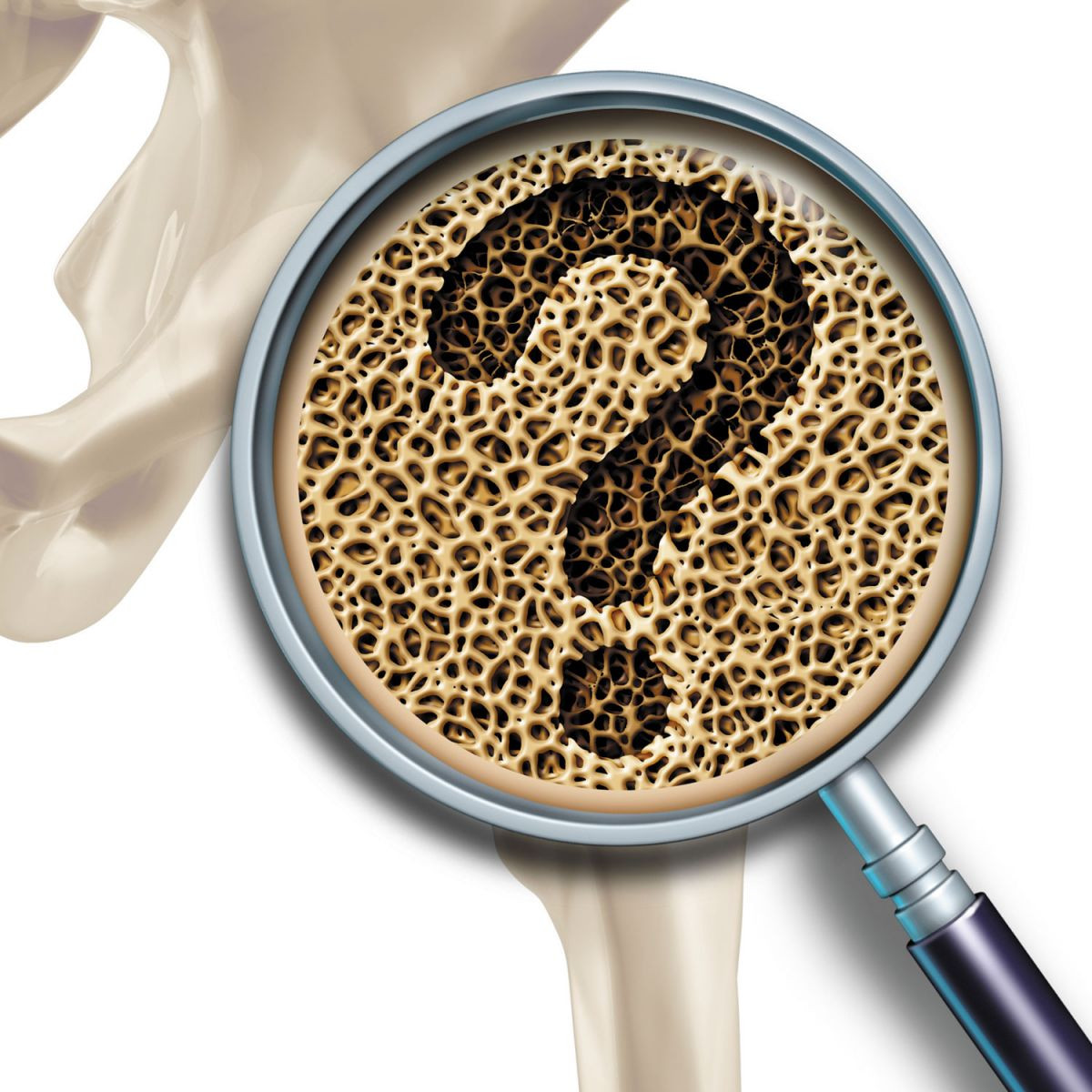
How �� and why �� to fit more fiber and fermented food into your meals

UTI in older women: Why postmenopausal women are susceptible to urinary tract infection, and what to do about it

Can a routine vaccine prevent dementia?

Some adults may need a measles booster shot. Who should get one and why?

Less butter, more plant oils, longer life?

Healthier planet, healthier people

Counting steps is good �� is combining steps and heart rate better?

Appendix pain: Could it be appendicitis?

Can saw palmetto treat an enlarged prostate?

How does Ozempic work? Understanding GLP-1s for diabetes, weight loss, and beyond
Medical Tests & Procedures Archive
Articles
What do the new mammography guidelines mean for you?
Image: Bigstock
Women can devise their own breast cancer screening schedules based on their risk and preferences.
If you tend to "go by the book" for preventive health care, you probably get a flu shot each fall, have a colonoscopy every 10 years, and generally follow the experts' recommendations. But what do you do about mammograms? For decades, the two most influential expert groups—the American Cancer Society (ACS) and the U.S. Preventive Services Task Force (USPSTF)—haven't agreed about when to start having mammograms, how often to have them, or how long to keep on having them. Although the two groups come a little closer together with their most recent guidelines, they still disagree about breast cancer screening for women ages 45 through 54.
Which tests do you need in 2016?
Make sure you get��your blood pressure measured at least once a year.
Image: Thinkstock
Screenings for cardiovascular disease, diabetes, and cancer aren't always routine.
Changes to mammogram screening recommendations
Image: Thinkstock
News briefs
The guidelines for routine breast cancer screenings are changing again. The American Cancer Society (ACS) published its new recommendations Oct. 20, 2015, in The Journal of the American Medical Association, suggesting that women at average risk for breast cancer now wait until age 45 to begin getting yearly mammograms (it had been age 40) and then get yearly mammograms until age 54. After that, the ACS now recommends that average-risk women ages 55 to 74 transition to screening every other year (instead of annually). It's a big shift for the ACS, and the recommendations are now more in line with the guidelines that came from the U.S. Preventive Services Task Force (USPSTF) in 2009, which recommended mammograms every two years for average-risk women ages 50 to 74 and advise against routine screening before age 50 in these women. The USPSTF guidelines have been controversial since they came out. But no one is saying that women at increased risk for breast cancer should wait to get a mammogram; it's a decision that must be made by a woman and her doctor, based on her risk factors. One other big change to the ACS guidelines: that women continue screening mammography only if they have a life expectancy of 10 years or longer.
Joint replacement �� finding the right medical team
Joint replacement is a complex procedure, and finding the right surgeon and hospital can make a big difference in your outcome. In general, you're likely to have a better result and fewer complications if your surgeon performs the operation frequently (at least 100 times per year) and operates in a hospital where these procedures are commonplace. Don't be surprised if this rules out the most convenient hospital for your location.
Your orthopedist, rheumatologist, or primary care physician, or a friend who has undergone successful joint replacement, may be able to recommend a specific surgeon. But keep in mind that your insurer may restrict you to certain specialists or require a larger copayment if you go outside your plan.
Cardioversion for afib
Ask the doctor
Q. I am scheduled for an electrical cardioversion for my atrial fibrillation. What should I expect?
A. Electrical cardioversion is a procedure to convert a fast or irregular heartbeat (such as what happens with atrial fibrillation, or afib) to a normal rhythm. Before the procedure, your cardiologist may recommend a special ultrasound test of your heart to check for blood clots. Cardioversion may dislodge any clots, which can be life-threatening. So if clots are found, the procedure may be delayed for a few weeks, so you can take blood-thinning medications to lower your risk of complications such as stroke.
Should you be tested for weak bones?
| Image: Thinkstock |
Men also get osteoporosis—but consider your risk factors before deciding to have a bone-strength test.
Men's and women's bodies differ in plenty of ways, but we all have bones, and with aging they may lose some of their strength and leave us more vulnerable to dangerous fractures of the hip or spine. Osteoporosis is not exclusively a women's health issue.
Repairing a bulging aorta from within is safest in the short term
Minimally invasive surgery for a bulging artery below the heart is much safer than open surgery in the short term, but the advantage fades over time, according to a study in The New England Journal of Medicine.
An abdominal aortic aneurysm (AAA) occurs when a portion of the aorta, the main blood vessel carrying blood from the heart to the lower part of the body, becomes enlarged and bulges out. If the bulge ruptures, it is usually fatal. This condition is more common in older men than in women.
Powerful gene editing technique may pave the way for new cures
The CRISPR technique has the potential to edit |
The technology is promising, but scientists are calling for controls on how the method is used.
Tests for hidden heart disease
Electrocardiograms, which monitor the heart's electrical patterns, don't reliably reveal the risk of having a heart attack. |
Unless you have symptoms of a heart problem, taking a cautionary look under the hood is unlikely to help—and could even be harmful.
Ask the doctor: New DNA-based test for colorectal cancer
Q. I heard that there is a new stool test for colon cancer screening. Can this test replace colonoscopy for me? I am 68 years old with no history of colon problems, and my last colonoscopy was normal.
��
��
A. Among screening tests for hidden colorectal cancer, colonoscopy remains the "gold standard" because it's the most effective technique for detecting colon cancers and simultaneously provides an opportunity to remove any precancerous growths (polyps). The new DNA-based stool test (Cologuard) is less invasive and inconvenient than colonoscopy and finds more cancers and polyps than older stool tests, but it does not entirely eliminate the need for colonoscopies.

How �� and why �� to fit more fiber and fermented food into your meals

UTI in older women: Why postmenopausal women are susceptible to urinary tract infection, and what to do about it

Can a routine vaccine prevent dementia?

Some adults may need a measles booster shot. Who should get one and why?

Less butter, more plant oils, longer life?

Healthier planet, healthier people

Counting steps is good �� is combining steps and heart rate better?

Appendix pain: Could it be appendicitis?

Can saw palmetto treat an enlarged prostate?

How does Ozempic work? Understanding GLP-1s for diabetes, weight loss, and beyond
Free Healthbeat Signup
Get the latest in health news delivered to your inbox!
Sign Up










